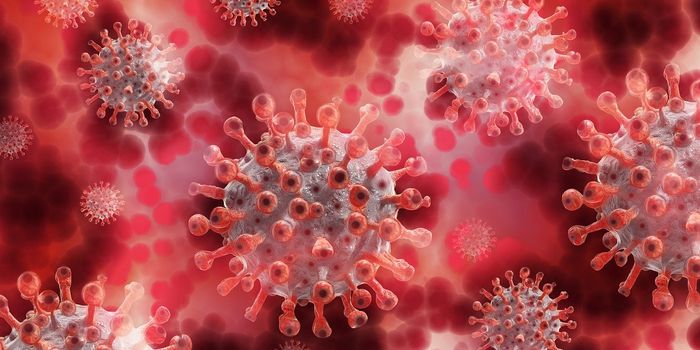Advances in Latest Coronavirus Research in the 2022 Ongoing Labroots Virtual Event Series

The presentations included research updates on global SARS-CoV-2 infection rates and treatments. SARS-CoV2 has infected over 500 million people and caused over 6 million deaths internationally. Dominant SARS-CoV-2 variants D614G, Delta, Omicron, and Omicron sub variants BA.1 and BA.2 were the causes of the majority of COVID-19 infections over the last few months around the globe. Many presentations covered the global epidemiology of SARS-CoV-2 infection and the impact of variants on the pandemic. Several presentations highlighted how the recent surge of infections driven by BA.4 and BA.5 may lead to a fifth wave of COVID-19 infections in South Africa.
This virtual event will be available on demand for two years. The conference featured a poster hall with 11 downloadable posters. The posters exhibited focused on developments in variant detection. Titles included:
- Rapid monitoring of circulating SARS-CoV-2 variants in the United States with early indicators of emergent variants using PCR-based phenotyping
- Epidemiological and biological associations of SARS-CoV-2 variants based on real world observational data
- Performance Evaluation of a Highly Mutation-Resilient RT-PCR Assay
- Clinical Performance Evaluation of The Multiplex Taqpath™ Covid-19, Flua, FluB combo Kit
- Clinical performance evaluation of three multiplex real-time RT-PCR assays for simultaneous detection of SARS-CoV-2, Influenza A and Influenza B
- Performance Evaluation of a Multiplex SARS-CoV-2, Flu A/B, RSV RT-PCR Test
- SARS-CoV-2 Variant Determination Using PCR-based Genotyping Assays
- Peptide Enrichment & Absolute Quantitation of SARS-CoV-2 by LC-MS
- Mothers Stress During Pandemic Effects Child Fear in Kids
- Bioanalytical Method for Determination Of Free, Liposomal Amphoteri Cin B
- Detection of SARS-CoV-2 Omicron variants using RT-PCR based genotyping assays
Conference Highlights
Many presentations covered new variant transmission rates and effectiveness of vaccination and booster initiatives. Proactive monitoring and prevention of new variant breakouts, vaccination and booster performance at preventing severe disease, and pharmaceutical elements that protect against infection were key takeaways from the conference.
Proactive Monitoring and Prevention of New Variant Breakouts
Several speakers emphasized the likelihood of new variants emerging and the need for maintaining proactive methods to reduce transmission of variants.
In a keynote address entitled “After the Mandates End: Preparing for the Next COVID-19 Variant”, Dr. Abraham Flaxman discussed how the Institute for Health Metrics (IHME) COVID-19 Projection Model works, and what it reveals about the current point in the COVID pandemic. Data (including case counts, hospitalizations, and COVID-19 deaths) was analyzed to examine the impact of the waning of vaccine effectiveness at preventing infection and severe disease over time, the true excess mortality due to COVID over the last two years, and how the omicron variant has changed the course of the pandemic. The research provided helpful insights about preparing for new variants. Enhanced levels of immunity, ongoing vaccination and boosters, availability of antivirals, high quality mask use and social distancing will be critical in managing the projected emergence of new variants.
Dr. Salim S. Adbool Karim explained the global epidemiology of SARS-CoV-2 infection and how the impact of new variants varies in individuals in relation to age, vaccination status, and time last vaccine/booster dose in his keynote address entitled “Covid-19: Variants Have Changed the Endgame.” Vaccines have proven to be highly effective in preventing severe disease, hospitalization, death, and lower secondary attack rates. Data indicated that social distancing also reduced SARS-CoV-2 transmission to contacts that occur via household and workplace interactions. Secondary attack rates are lower because vaccinated individuals who get infected are less infectious due to a lower viral load and a shorter duration of infectiousness.
Advances in Vaccination and Booster Research
Dr. Ralph Baric’s keynote address “Presentation: SARS-CoV2: Rapid Response Platforms for Pandemic Virus Control in the 21st Century” covered the development of novel countermeasures to control COVID19 disease severity in human populations. He discussed the SARS-CoV2 host range, cross species transmission strategies, viral genetics, replication, evolution, pathogenic mechanisms, and immunity.
Dr. Susanne Krasemann, M.D., Ph.D. delivered a keynote address entitled “Neuropathology of SARS-CoV-2 as Revealed by Spatial Biology.” She explained how data provide strong probability for SARS-CoV-2 brain entry across the blood brain barrier (BBB) resulting in an increase in interferon signaling. Understanding these mechanisms can lead to novel therapeutic approaches to reduce extreme disease and fatality.
Pharmaceutical Elements that Protect Against Infection
Kayvon Modjarran, M.D., Ph.D. delivered a keynote address entitled “Toward Universal Coronavirus Vaccines: From Concept to Clinic.” This address highlighted the need for next-generation, broadly protective coronavirus vaccines. The accelerated pace at which human coronaviruses have been emerging, the evolution of the current pandemic and the long-term threat of a continual rise of novel coronavirus variants, strains and species make this an urgent matter. In particular, an adjuvanted SARS-CoV-2 Spike ferritin nanoparticle (SpFN) vaccine offers broad protective immunity against multiple sarbecoviruses. It potentially neutralizes antibody responses against wild-type SARS-CoV-2, variants of concern, and SARS-CoV-1 that exceed levels elicited by other major vaccines. The rapid protection of SpFNs is a potentially promising broadly protective coronavirus vaccine.
This event provided extensive information on the latest coronavirus research. Please visit the Coronavirus 2022 Virtual event website to see the full agenda and access the on-demand content and learn about upcoming events focused on this pathogen.








